Family, the cornerstone of love and understanding, has inspired poets for centuries, leading to the creation of timeless, heartfelt and famous family poems. These poetic verses delve into the intricate dynamics of familial bonds, capturing the essence of love, support and unity that defines what a family is.
In these renowned poems, many well-known poets have beautifully articulated the complexities of relationships, weaving words that resonate deeply with readers across generations. From the unbreakable ties between parents and children to the enduring love among siblings, these poems illuminate the various facets of family life, portraying both the challenges and the moments of immense joy. In the realm of famous family poems, poets often explore themes of unconditional love, sacrifice, and the passage of time. These verses celebrate the shared experiences, the laughter, and even the tears that bind families together. Through their eloquent words, these poets invite readers to reflect on their own family relationships, evoking a sense of nostalgia and gratitude for the intricate tapestry of connections that shape our lives.
In conclusion, if you are looking for a unique way to convey your love toward your family, whether through heartfelt expressions of gratitude or poignant reflections on loss, these famous family poems below serve as a testament to the enduring power of family, reminding us of the importance of cherishing these precious bonds in our lives.
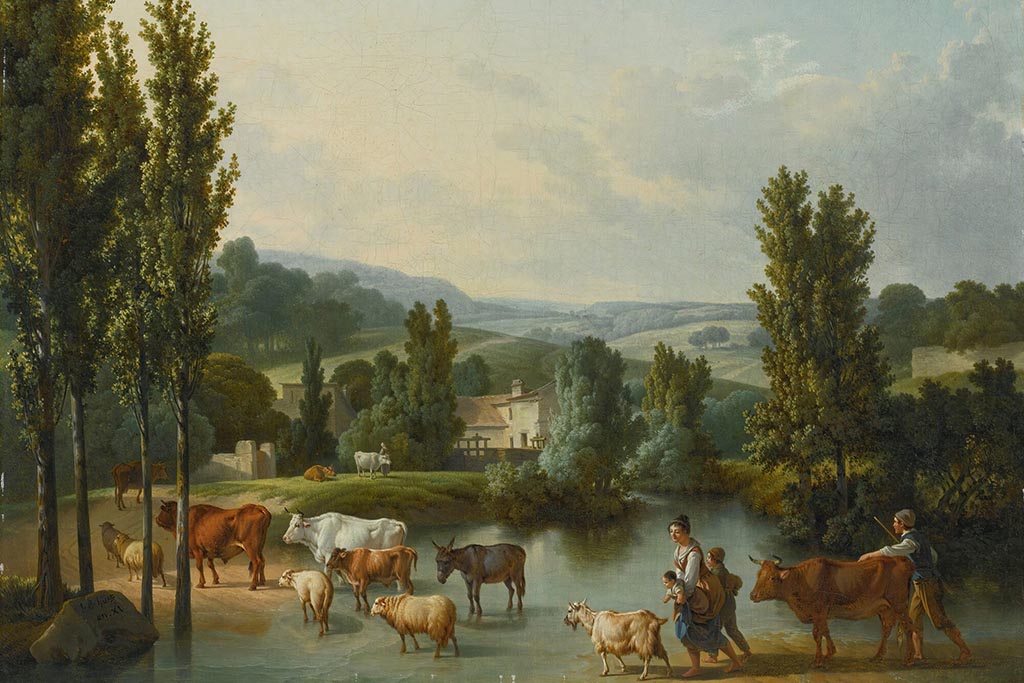
1, Family © Selma Kopic
Family is not a house you build, renovate, choose,
that is something what you gain once and never lose.
Family is not a device that has parts you can replace,
it’s always there, it isn’t something you have to chase.
Family is a port where the lighthouse always shines,
and to which you always return from your wanderings.
Family is an old tree with rich canopies
on which, quite naturally, new branches take their place.
And when something in it family bothers you,
like a pebble in your boots,
you can always rely on its deep roots.
2, Family Issues © Malume Kzit
I’m ain’t talking of tissues
I’m talking about family issues
That leaves victims with bruses
Some hiding with bushes
No outsider fighting but its family pushes
Does that involve poverty?
Lack of property?
Lack of prosperity?
This really causes curiosity
Family issues
I’m even afraid of this name
It kills someones sole
It digs a biggest hole
Leaving you without a role
They say blood is thicker than water
But some water get thicker than it
Family fights are imotionally painful
Especially to those respectful
Does the name ” you’re choosing sides” nessessary in family issues ?
I don’t think they do
Ain’t they have bond
Does love resist in that kind of family?
my pen is out of ink!
Family issues that’s my barrier
3, To My Sister © William Wordsworth
IT is the first mild day of March:
Each minute sweeter than before,
The Redbreast sings from the tall larch
That stands beside our door.
There is a blessing in the air,
Which seems a sense of joy to yield
To the bare trees, and mountains bare,
And grass in the green field.
My Sister! (’tis a wish of mine)
Now that our morning meal is done,
Make haste, your morning task resign;
Come forth and feel the sun.
Edward will come with you;—and pray,
Put on with speed your woodland dress;
And bring no book: for this one day
We’ll give to idleness.
No joyless forms shall regulate
Our living Calendar:
We from to-day, my friend, will date
The opening of the year.
Love, now a universal birth,
From heart to heart is stealing,
From earth to man, from man to earth,
—It is the hour of feeling.
One moment now may give us more
Than years of toiling reason:
Our minds shall drink at every pore
The spirit of the season.
Some silent laws our hearts will make,
Which they shall long obey:
We for the year to come may take
Our temper from to-day.
And from the blessed power that rolls
About, below, above,
We’ll frame the measure of our souls:
They shall be tuned to love.
Then come, my Sister! come I pray,
With speed put on your woodland dress;
—And bring no book: for this one day
We’ll give to idleness.
4, All In A Family Way © Thomas Moore
My banks are all furnished with rags,
So thick, even Freddy can’t thin ’em;
I’ve torn up my old money-bags,
Having little or nought to put in ’em.
My tradesman are smashing by dozens,
But this is all nothing, they say;
For bankrupts, since Adam, are cousins,
So, it’s all in the family way.
My Debt not a penny takes from me,
As sages the matter explain; –
Bob owes it to Tom and then Tommy
Just owes it to Bob back again.
Since all have thus taken to owing,
There’s nobody left that can pay;
And this is the way to keep going, –
All quite in the family way.
My senators vote away millions,
To put in Prosperity’s budget;
And though it were billions or trillions,
The generous rogues wouldn’t grudge it.
‘Tis all but a family hop,
‘Twas Pitt began dancing the hay;
Hands round! – why the deuce should we stop?
‘Tis all in the family way.
My labourers used to eat mutton,
As any great man of the State does;
And now the poor devils are put on
Small rations of tea and potatoes.
But cheer up John, Sawney and Paddy,
The King is your father, they say;
So ev’n if you starve for your Daddy,
‘Tis all in the family way.
My rich manufacturers tumble,
My poor ones have nothing to chew;
And, even if themselves do not grumble,
Their stomachs undoubtedly do.
But coolly to fast en famille,
Is as good for the soul as to pray;
And famine itself is genteel,
When one starves in a family way.
I have found out a secret for Freddy,
A secret for next Budget day;
Though, perhaps he may know it already,
As he, too, ‘s a sage in his way.
When next for the Treasury scene he
Announces ‘the Devil to pay’,
Let him write on the bills, ‘Nota bene,
‘Tis all in the family way.’
5, The Rose Family © Robert Frost
The rose is a rose,
And was always a rose.
But the theory now goes
That the apple’s a rose,
And the pear is, and so’s
The plum, I suppose.
The dear only know
What will next prove a rose.
You, of course, are a rose–
But were always a rose.
6, The Family © Katherine Mansfield
Hinemoa, Tui, Maina,
All of them were born together;
They are quite an extra special
Set of babies–wax and leather.
Every day they took an airing;
Mummy made them each a bonnet;
Two were cherry, one was yellow
With a bow of ribbon on it.
Really, sometimes we would slap them,
For if ever we were talking,
They would giggle and be silly,
Saying, “Mamma, take us walking.”
But we never really loved them
Till one day we left them lying
In the garden–through a hail-storm,
And we heard the poor dears crying.
Half-Past-Six said–“You’re a mother!
What if Mummy did forget you?”
So I said, “Well, you’re their Father.
Get them!” but I wouldn’t let you.
7, The Rose Family – Song 1 © Louisa May Alcott
O flower at my window
Why blossom you so fair,
With your green and purple cup
Upturned to sun and air?
‘I bloom, blithesome Bessie,
To cheer your childish heart;
The world is full of labor,
And this shall be my part.’
Whirl, busy wheel, faster,
Spin, little thread, spin;
The sun shines fair without,
And we are gay within.
O robin in the tree-top,
With sunshine on your breast,
Why brood you so patiently
Above your hidden nest?
‘I brood, blithesome Bessie,
And sing my humble song,
That the world may have more music
From my little ones erelong.’
Whirl, busy wheel, faster,
Spin, little thread, spin;
The sun shines fair without,
And we are gay within.
O balmy wind of summer,
O silver-singing brook,
Why rustle through the branches?
Why shimmer in your nook?
‘I flutter, blithesome Bessie,
Like a blessing far and wide;
I scatter bloom and verdue
Where’er my footsteps glide.’
Whirl, busy wheel, faster,
Spin, little thread, spin;
The sun shines fair without,
And we are gay within.
O brook and breeze and blossom,
And robin on the tree,
You make a joy of duty,
A pride of industry;
Teach me to work as blithely,
With a willing hand and heart:
The world is full of labor,
And I must do my part.
Whirl, busy wheel, faster,
Spin, little thread, spin;
The sun shines fair without,
And we are gay within.
8, Sonnets Are Full of Love © Christina Rossetti
Sonnets are full of love, and this my tome
Has many sonnets: so here now shall be
One sonnet more, a love sonnet, from me
To her whose heart is my heart’s quiet home,
To my first Love, my Mother, on whose knee
I learnt love-lore that is not troublesome;
Whose service is my special dignity,
And she my loadstar while I go and come.
And so because you love me, and because
I love you, Mother, I have woven a wreath
Of rhymes wherewith to crown your honoured name:
In you not fourscore years can dim the flame
Of love, whose blessed glow transcends the laws
Of time and change and mortal life and death.
9, The Stick-Together Families © Edgar A. Guest
The stick-together families are happier by far
Than the brothers and the sisters who take separate highways are.
The gladdest people living are the wholesome folks who make
A circle at the fireside that no power but death can break.
And the finest of conventions ever held beneath the sun
Are the little family gatherings when the busy day is done.
There are rich folk, there are poor folk, who imagine they are wise,
And they’re very quick to shatter all the little family ties.
Each goes searching after pleasure in his own selected way,
Each with strangers likes to wander, and with strangers likes to play.
But it’s bitterness they harvest, and it’s empty joy they find,
For the children that are wisest are the stick-together kind.
There are some who seem to fancy that for gladness they must roam,
That for smiles that are the brightest they must wander far from home.
That the strange friend is the true friend, and they travel far astray
they waste their lives in striving for a joy that’s far away,
But the gladdest sort of people, when the busy day is done,
Are the brothers and the sisters who together share their fun.
It’s the stick-together family that wins the joys of earth,
That hears the sweetest music and that finds the finest mirth;
It’s the old home roof that shelters all the charm that life can give;
There you find the gladdest play-ground, there the happiest spot to live.
And, O weary, wandering brother, if contentment you would win,
Come you back unto the fireside and be comrade with your kin.
10, Mother to Son © Langston Hughes
Well, son, I’ll tell you:
Life for me ain’t been no crystal stair.
It’s had tacks in it,
And splinters,
And boards torn up,
And places with no carpet on the floor—
Bare.
But all the time
I’se been a-climbin’ on,
And reachin’ landin’s,
And turnin’ corners,
And sometimes goin’ in the dark
Where there ain’t been no light.
So boy, don’t you turn back.
Don’t you set down on the steps
’Cause you finds it’s kinder hard.
Don’t you fall now—
For I’se still goin’, honey,
I’se still climbin’,
And life for me ain’t been no crystal stair.
11, Family Court © Ogden Nash
One would be in less danger
From the wiles of a stranger
If one’s own kin and kith
Were more fun to be with.
12, All In a Family Way © Thomas Moore
My banks are all furnished with rags,
So thick, even Freddy can’t thin ’em;
I’ve torn up my old money-bags,
Having little or nought to put in ’em.
My tradesman are smashing by dozens,
But this is all nothing, they say;
For bankrupts, since Adam, are cousins,
So, it’s all in the family way.
My Debt not a penny takes from me,
As sages the matter explain; —
Bob owes it to Tom and then Tommy
Just owes it to Bob back again.
Since all have thus taken to owing,
There’s nobody left that can pay;
And this is the way to keep going, —
All quite in the family way.
My senators vote away millions,
To put in Prosperity’s budget;
And though it were billions or trillions,
The generous rogues wouldn’t grudge it.
‘Tis all but a family hop,
‘Twas Pitt began dancing the hay;
Hands round! — why the deuce should we stop?
‘Tis all in the family way.
My labourers used to eat mutton,
As any great man of the State does;
And now the poor devils are put on
Small rations of tea and potatoes.
But cheer up John, Sawney and Paddy,
The King is your father, they say;
So ev’n if you starve for your Daddy,
‘Tis all in the family way.
My rich manufacturers tumble,
My poor ones have nothing to chew;
And, even if themselves do not grumble,
Their stomachs undoubtedly do.
But coolly to fast en famille,
Is as good for the soul as to pray;
And famine itself is genteel,
When one starves in a family way.
I have found out a secret for Freddy,
A secret for next Budget day;
Though, perhaps he may know it already,
As he, too, ‘s a sage in his way.
When next for the Treasury scene he
Announces “the Devil to pay”,
Let him write on the bills, “Nota bene,
‘Tis all in the family way.”
13, Tortoise Family Connections © David Herbert Lawrence
On he goes, the little one,
Bud of the universe,
Pediment of life.
Setting off somewhere, apparently.
Whither away, brisk egg?
His mother deposited him on the soil as if he were no more than droppings,
And now he scuffles tinily past her as if she were an old rusty tin.
A mere obstacle,
He veers round the slow great mound of her —
Tortoises always foresee obstacles.
It is no use my saying to him in an emotional voice:
“This is your Mother, she laid you when you were an egg.”
He does not even trouble to answer: “Woman, what have I to do with thee?”
He wearily looks the other way,
And she even more wearily looks another way still,
Each with the utmost apathy,
Incognisant,
Unaware,
Nothing.
As for papa,
He snaps when I offer him his offspring,
Just as he snaps when I poke a bit of stick at him,
Because he is irascible this morning, an irascible tortoise
Being touched with love, and devoid of fatherliness.
Father and mother,
And three little brothers,
And all rambling aimless, like little perambulating pebbles scattered in the garden,
Not knowing each other from bits of earth or old tins.
Except that papa and mama are old acquaintances, of course,
Though family feeling there is none, not even the beginnings.
Fatherless, motherless, brotherless, sisterless
Little tortoise.
Row on then, small pebble,
Over the clods of the autumn, wind-chilled sunshine,
Young gaiety.
Does he look for a companion?
No, no, don’t think it.
He doesn’t know he is alone;
Isolation is his birthright,
This atom.
To row forward, and reach himself tall on spiny toes,
To travel, to burrow into a little loose earth, afraid of the night,
To crop a little substance,
To move, and to be quite sure that he is moving:
Basta!
To be a tortoise!
Think of it, in a garden of inert clods
A brisk, brindled little tortoise, all to himself —
Adam!
In a garden of pebbles and insects
To roam, and feel the slow heart beat
Tortoise-wise, the first bell sounding
From the warm blood, in the dark-creation morning.
Moving, and being himself,
Slow, and unquestioned,
And inordinately there, O stoic!
Wandering in the slow triumph of his own existence,
Ringing the soundless bell of his presence in chaos,
And biting the frail grass arrogantly,
Decidedly arrogantly.
14, Pokeberries © Ruth Stone
I started out in the Virginia mountains
with my grandma’s pansy bed
and my Aunt Maud’s dandelion wine.
We lived on greens and back-fat and biscuits.
My Aunt Maud scrubbed right through the linoleum.
My daddy was a Northerner who played drums
and chewed tobacco and gambled.
He married my mama on the rebound.
Who would want an ignorant hill girl with red hair?
They took a Pullman up to Indianapolis
and someone stole my daddy’s wallet.
My whole life has been stained with pokeberries.
No man seemed right for me. I was awkward
until I found a good wood-burning stove.
There is no use asking what it means.
With my first piece of ready cash I bought my own
place in Vermont; kerosene lamps, dirt road.
I’m sticking here like a porcupine up a tree.
Like the one our neighbor shot. Its bones and skin
hung there for three years in the orchard.
No amount of knowledge can shake my grandma out of me;
or my Aunt Maud; or my mama, who didn’t just bite an apple
with her big white teeth. She split it in two.
15, This Be The Verse © Philip Larkin
They fuck you up, your mum and dad.
They may not mean to, but they do.
They fill you with the faults they had
And add some extra, just for you.
But they were fucked up in their turn
By fools in old-style hats and coats,
Who half the time were soppy-stern
And half at one another’s throats.
Man hands on misery to man.
It deepens like a coastal shelf.
Get out as early as you can,
And don’t have any kids yourself.
16, Human Family © Maya Angelou
I note the obvious differences
in the human family.
Some of us are serious,
some thrive on comedy.
Some declare their lives are lived
as true profundity,
and others claim they really live
the real reality.
The variety of our skin tones
can confuse, bemuse, delight,
brown and pink and beige and purple,
tan and blue and white.
I’ve sailed upon the seven seas
and stopped in every land,
I’ve seen the wonders of the world
not yet one common man.
I know ten thousand women
called Jane and Mary Jane,
but I’ve not seen any two
who really were the same.
Mirror twins are different
although their features jibe,
and lovers think quite different thoughts
while lying side by side.
We love and lose in China,
we weep on England’s moors,
and laugh and moan in Guinea,
and thrive on Spanish shores.
We seek success in Finland,
are born and die in Maine.
In minor ways we differ,
in major we’re the same.
I note the obvious differences
between each sort and type,
but we are more alike, my friends,
than we are unalike.
We are more alike, my friends,
than we are unalike.
We are more alike, my friends,
than we are unalike.
17, Mother To Son © Langston Hughes
Well, son, I’ll tell you:
Life for me ain’t been no crystal stair.
It’s had tacks in it,
And splinters,
And boards torn up,
And places with no carpet on the floor-
Bare.
But all the time
I’se been a-climbin’ on,
And reachin’ landin’s,
And turnin’ corners,
And sometimes goin’ in the dark
Where there ain’t been no light.
So, boy, don’t you turn back.
Don’t you set down on the steps.
‘Cause you finds it’s kinder hard.
Don’t you fall now-
For I’se still goin’, honey,
I’se still climbin’,
And life for me ain’t been no crystal stair.
18, The Children’s Hour © Henry Wadsworth Longfellow
Between the dark and the daylight,
When the night is beginning to lower,
Comes a pause in the day’s occupations,
That is known as the Children’s Hour.
I hear in the chamber above me
The patter of little feet,
The sound of a door that is opened,
And voices soft and sweet.
From my study I see in the lamplight,
Descending the broad hall stair,
Grave Alice, and laughing Allegra,
And Edith with golden hair.
A whisper, and then a silence:
Yet I know by their merry eyes
They are plotting and planning together
To take me by surprise.
A sudden rush from the stairway,
A sudden raid from the hall!
By three doors left unguarded
They enter my castle wall!
They climb up into my turret
O’er the arms and back of my chair;
If I try to escape, they surround me;
They seem to be everywhere.
They almost devour me with kisses,
Their arms about me entwine,
Till I think of the Bishop of Bingen
In his Mouse-Tower on the Rhine!
Do you think, O blue-eyed banditti,
Because you have scaled the wall,
Such an old mustache as I am
Is not a match for you all!
I have you fast in my fortress,
And will not let you depart,
But put you down into the dungeon
In the round-tower of my heart.
And there will I keep you forever,
Yes, forever and a day,
Till the walls shall crumble to ruin,
And moulder in dust away!
19, Life’s Scars © Ella Wheeler Wilcox
They say the world is round, and yet
I often think it square,
So many little hurts we get
From corners here and there.
But one great truth in life I’ve found,
While journeying to the West-
The only folks who really wound
Are those we love the best.
The man you thoroughly despise
Can rouse your wrath, ’tis true;
Annoyance in your heart will rise
At things mere strangers do;
But those are only passing ills;
This rule all lives will prove;
The rankling wound which aches and thrills
Is dealt by hands we love.
The choicest garb, the sweetest grace,
Are oft to strangers shown;
The careless mien, the frowning face,
Are given to our own.
We flatter those we scarcely know,
We please the fleeting guest,
And deal full many a thoughtless blow
To those who love us best.
Love does not grow on every tree,
Nor true hearts yearly bloom.
Alas for those who only see
This cut across a tomb!
But, soon or late, the fact grows plain
To all through sorrow’s test:
The only folks who give us pain
Are those we love the best.
20, The Stick-Together Families © Edgar A. Guest
The stick-together families are happier by far
Than the brothers and the sisters who take separate highways are.
The gladdest people living are the wholesome folks who make
A circle at the fireside that no power but death can break.
And the finest of conventions ever held beneath the sun
Are the little family gatherings when the busy day is done.
There are rich folk, there are poor folk, who imagine they are wise,
And they’re very quick to shatter all the little family ties.
Each goes searching after pleasure in his own selected way,
Each with strangers likes to wander, and with strangers likes to play.
But it’s bitterness they harvest, and it’s empty joy they find,
For the children that are wisest are the stick-together kind.
There are some who seem to fancy that for gladness they must roam,
That for smiles that are the brightest they must wander far from home.
That the strange friend is the true friend, and they travel far astray
they waste their lives in striving for a joy that’s far away,
But the gladdest sort of people, when the busy day is done,
Are the brothers and the sisters who together share their fun.
It’s the stick-together family that wins the joys of earth,
That hears the sweetest music and that finds the finest mirth;
It’s the old home roof that shelters all the charm that life can give;
There you find the gladdest play-ground, there the happiest spot to live.
And, O weary, wandering brother, if contentment you would win,
Come you back unto the fireside and be comrade with your kin.
21, A Smile To Remember © Charles Bukowski
we had goldfish and they circled around and around
in the bowl on the table near the heavy drapes
covering the picture window and
my mother, always smiling, wanting us all
to be happy, told me, ‘be happy Henry!’
and she was right: it’s better to be happy if you
can
but my father continued to beat her and me several times a week while
raging inside his 6—foot—two frame because he couldn’t
understand what was attacking him from within.
my mother, poor fish,
wanting to be happy, beaten two or three times a
week, telling me to be happy: ‘Henry, smile!
why don’t you ever smile?’
and then she would smile, to show me how, and it was the
saddest smile I ever saw
one day the goldfish died, all five of them,
they floated on the water, on their sides, their
eyes still open,
and when my father got home he threw them to the cat
there on the kitchen floor and we watched as my mother
smiled
22, The Family © Mary Oliver
The dark things of the wood
Are coming from their caves,
Flexing muscle.
They browse the orchard,
Nibble the sea of grasses
Around our yellow rooms,
Scarcely looking in
To see what we are doing
And if they still know us.
We hear them, or think we do:
The muzzle lapping moonlight,
The tooth in the apple.
Put another log on the fire;
Mozart, again, on the turntable,
Still there is a sorrow
With us in the room.
We remember the cave.
In our dreams we go back
Or they come to visit.
They also like music.
We eat leaves together.
They are our brothers.
They are the family
We have run away from.
23, Family Court © Ogden Nash
One would be in less danger
From the wiles of a stranger
If one’s own kin and kith
Were more fun to be with.
24, Mother, A Cradle To Hold Me © Maya Angelou
It is true
I was created in you.
It is also true
That you were created for me.
I owned your voice.
It was shaped and tuned to soothe me.
Your arms were molded
Into a cradle to hold me, to rock me.
The scent of your body was the air
Perfumed for me to breathe.
Mother,
During those early, dearest days
I did not dream that you had
A large life which included me,
For I had a life
Which was only you.
Time passed steadily and drew us apart.
I was unwilling.
I feared if I let you go
You would leave me eternally.
You smiled at my fears, saying
I could not stay in your lap forever.
That one day you would have to stand
And where would I be?
You smiled again.
I did not.
Without warning you left me,
But you returned immediately.
You left again and returned,
I admit, quickly,
But relief did not rest with me easily.
You left again, but again returned.
You left again, but again returned.
Each time you reentered my world
You brought assurance.
Slowly I gained confidence.
You thought you know me,
But I did know you,
You thought you were watching me,
But I did hold you securely in my sight,
Recording every moment,
Memorizing your smiles, tracing your frowns.
In your absence
I rehearsed you,
The way you had of singing
On a breeze,
While a sob lay
At the root of your song.
The way you posed your head
So that the light could caress your face
When you put your fingers on my hand
And your hand on my arm,
I was blessed with a sense of health,
Of strength and very good fortune.
You were always
the heart of happiness to me,
Bringing nougats of glee,
Sweets of open laughter.
During the years when you knew nothing
And I knew everything, I loved you still.
Condescendingly of course,
From my high perch
Of teenage wisdom.
I grew older and
Was stunned to find
How much knowledge you had gleaned.
And so quickly.
Mother, I have learned enough now
To know I have learned nearly nothing.
On this day
When mothers are being honored,
Let me thank you
That my selfishness, ignorance, and mockery
Did not bring you to
Discard me like a broken doll
Which had lost its favor.
I thank you that
You still find something in me
To cherish, to admire and to love.
I thank you, Mother.
I love you.
25, A Boy Named Sue © Shel Silverstein
Well, my daddy left home when I was three,
and he didn’t leave much to Ma and me,
just this old guitar and a bottle of booze.
Now I don’t blame him because he run and hid,
but the meanest thing that he ever did was
before he left he went and named me Sue.
Well, he must have thought it was quite a joke,
and it got lots of laughs from a lot of folks,
it seems I had to fight my whole life through.
Some gal would giggle and I’d get red
and some guy would laugh and I’d bust his head,
I tell you, life ain’t easy for a boy named Sue.
Well, I grew up quick and I grew up mean.
My fist got hard and my wits got keen.
Roamed from town to town to hide my shame,
but I made me a vow to the moon and the stars,
I’d search the honky tonks and bars and kill
that man that gave me that awful name.
But it was Gatlinburg in mid July and I had
just hit town and my throat was dry.
I’d thought i’d stop and have myself a brew.
At an old saloon in a street of mud
and at a table dealing stud sat the dirty,
mangy dog that named me Sue.
Well, I knew that snake was my own sweet dad
from a worn-out picture that my mother had
and I knew the scar on his cheek and his evil eye.
He was big and bent and gray and old
and I looked at him and my blood ran cold,
and I said, “My name is Sue. How do you do?
Now you’re gonna die.” Yeah, that’s what I told him.
Well, I hit him right between the eyes and he went down
but to my surprise he came up with a knife
and cut off a piece of my ear. But I busted a chair
right across his teeth. And we crashed through
the wall and into the street kicking and a-gouging
in the mud and the blood and the beer.
I tell you I’ve fought tougher men but I really can’t remember when.
He kicked like a mule and bit like a crocodile.
I heard him laughin’ and then I heard him cussin’,
he went for his gun and I pulled mine first.
He stood there looking at me and I saw him smile.
And he said, “Son, this world is rough and if
a man’s gonna make it, he’s gotta be tough
and I knew I wouldn’t be there to help you along.
So I gave you that name and I said ‘Goodbye’.
I knew you’d have to get tough or die. And it’s
that name that helped to make you strong.”
Yeah, he said, “Now you have just fought one
helluva fight, and I know you hate me and you’ve
got the right to kill me now and I wouldn’t blame you
if you do. But you ought to thank me
before I die for the gravel in your guts and the spit
in your eye because I’m the nut that named you Sue.”
Yeah, what could I do? What could I do?
I got all choked up and I threw down my gun,
called him pa and he called me a son,
and I came away with a different point of view
and I think about him now and then.
Every time I tried, every time I win and if I
ever have a son I think I am gonna name him
Bill or George; anything but Sue.
26, A Family Inheritance © Tony E Roberts
i.
She stared at her reflection in the silver spoon.
It was her Nanna’s.
The spoon, not her reflection.
ii.
Her face was her father’s.
And she hated him for it.
It was all he left behind.
27, A ma mère © Jacques ROLLAND
La tristesse donne un air sombre et sévère au visage de maman dont le regard semble traverser toute chose, percevoir dans le lointain quelque vérité terrible et muette qui captive son âme.
Quelle pudeur absurde me retient de serrer contre moi son corps de petit oiseau amaigri, outragé par le travail du temps ?
Il n’y a pas une parcelle de moi-même, une once de ma chair ou de mon sang qui ne refusent de voir impuissant s’évaporer avec son corps, l’âme de maman.
Son âme… apeurée par les affres de l’oubli, la perte des souvenirs, l’incompréhension du monde, s’est réfugiée dans la tristesse désabusée de son sourire ; tristesse fugitive qu’un revers bref de la main repousse plus loin, pour ne pas inquiéter, pour protéger le plus longtemps possible ceux qu’elle aime.
Pauvre maman Jeanne, la vague géante de ton amour viendra s’échouer un jour à mes pieds. Alors toute l’écume de ta vie roulera sur la mienne.
28, A Tempest in a Teacup © A. Van Jordan
Prospero
Assume, just for a moment,
I am denied a job
in the factory of my dreams
under the fluorescent lights
of a porcelain white foreman.
It’s orderly and neat.
I feed my family.
No one questions my face.
I raised my son in my likeness,
so he would never go unseen,
bobbing on a wave of expectation,
I set in motion with my back
put into my work, praying
for my country, blessed
with more of me, never worrying
about those who might die,
or those who did, trying
to stir a storm, trying
to stand where I’m standing.
29, A window into the world © Walter William Safar
The crow flaps its dark wings up there,
hungryor death,
and the dark opened its mouth down there,
hungry for poverty.
Both are permanent visitors on 134th street,
the street of my childhood,
where I returned to after fifty years of straying.
Nothing has changed,
apart from the poverty
which became bigger and darker.
The orphanage is still in the same place
where I used to daydream of the outside world
for hours, days and months on an end I used to stand by the window,
shyly stealing smiles from other kids
who cheerfully jumped around their parents,
dreaming that someday I might hold a child by their hand,
and walk far away from the orphanage.
But that world,
the world I used to watch with so much desire
through the little hole of poverty,
became even colder, lonelier and darker than the orphanage to me.
Yes, Lord, I admit to this standing next to the old orphanage’s window,
from my dear and sad sight of the world,
that I am coming home poorer and lonelier,
much sadder and poorer
than I was back in my childhood,
because back then I was rich with youth and hope,
and now I am so hopelessly old and lonely.
I am looking at my old orphanage,
and Patrick’s reverberant voice crosses my mind,
Patrick who is long since reading his dear little poems
to angels in white heavenly fields.
When I used to stray the dark streets of the world,
the memory of his precious and clear eyes
was my lighthouse,
and now I am left without youth and friends,
hopelessly old and lonely,
in the company of crows, darkness and poverty.
While I am standing at my little sight of the world,
the wind is carrying around the cigarette ember
along the street of my childhood,
leaving behind a fiery trail for my poverty,
and the old orphanage window,
my small sight of the world,
is creaking like the bones of an old homeless man,
as if it arrived at its end too.
I wonder how many views that old window had provided,
and how many gazes and scorn it withstood?
My old window into the world squeaked again,
and now I know that it is time for me to venture into the dark,
to return into the world,
because my old window
is providing a new hope and new view of the world
to a new resident of the orphanage now.
30, Death in the Family © Julie Hill Alger
They call it stroke.
Two we loved were stunned
by that same blow of cudgel
or axe to the brow.
Lost on the earth
they left our circle
broken.
One spent five months
falling from our grasp
mute, her grace, wit,
beauty erased.
Her green eyes gazed at us
as if asking, as if aware,
as if hers. One night
she slipped away;
machinery of mercy
brought her back
to die more slowly.
At long last
she escaped.
Our collie dog
fared better.
A lesser creature, she
had to spend only one day
drifting and reeling,
her brown eyes
beseeching. Then she
was tenderly lifted,
laid on a table,
praised, petted
and set free.
31, Touched my family © Ivan Donn Carswell
Even from afar came shouts of recognition
joyful voices rang across the years disdained and
faces of our childhood unforgot fit instantly familiar names;
voices still the same despite the extra grey, the extra lines,
like sacred family metaphors not blurred with passing time.
Uncles greeted cousins, nieces hailed their aunts in private spaces
kept for kith and kin, as if by chance this place, and the children’s
children ran and played while old familiars sought out old familiars
and said gooday. Some, lost in paternity-unexplained reserve
feigned acquaintance, made clamorous greetings
never really meeting friendly eyes; we observed
no contradiction, in the art of being Gillgren
ambiguity is a smile disguised. And as more arrived
to swell the throng shyness shifted and was crushed
in the overwhelming warmth of welcome.
That was handshakes day,
a day of greetings, of hugs and patent kisses,
of faded family jokes and famous legends, a day
we traded lissom lies and downright deconstructions,
disavowals and denials, embellishments and exhortations,
trials and travails, and everywhere without exception,
vibrant, friendly laughter filled the air. We packed the missing years,
relentlessly connecting memories, seeking explanations,
listening with desirous passion. We met again,
to celebrate our names, to celebrate our Patriarch,
Johannes Efraim Gillgren.
The moment which defined it came belatedly
amid a blush of hereditary patience (infused, no doubt,
by alcohol and calmed by pious charity).
We sat together, splendidly naïve on the threshold of our similitude,
watching images of Johannes and forebears on the screen.
The images didn’t cause abjuring sentiment
(we have the pictures in our albums – treasure every one),
but it was no less a shock to find our hows and whys, where
with delinquent validation laid bare, we’d all endured yet come
by signal cause – and now we knew who needed who.
Mine weren’t the only tear-filled eyes, I cried
for Harriet and Johannes, and my parents who had died,
I cried without shame for I love them dear,
and I loved them in secret for fear of discovery; yes, I tell you this,
for how wrong can you be? And in the closeness of that room
I reached out and touched my family.
32, Only A Dad © Edgar A. Guest
Only a dad, with a tired face,
Coming home from the daily race,
Bringing little of gold or fame,
To show how well he has played the game,
But glad in his heart that his own rejoice
To see him come, and to hear his voice.
Only a dad, with a brood of four,
One of ten million men or more.
Plodding along in the daily strife,
Bearing the whips and the scorns of life,
With never a whimper of pain or hate,
For the sake of those who at home await.
Only a dad, neither rich nor proud,
Merely one of the surging crowd
Toiling, striving from day to day,
Facing whatever may come his way,
Silent, whenever the harsh condemn,
And bearing it all for the love of them.
Only a dad, but he gives his all
To smooth the way for his children small,
Doing, with courage stern and grim,
The deeds that his father did for him.
This is the line that for him I pen,
Only a dad, but the best of men.
You May Also Like:
- 31+ Farewell Poems For Best Friend: Sincere & Touching
- The 100 Most Popular Love Poems Will Make Your Heart Sob
- True Love Poems – 55 Deep Romantic Poems About True Love
- Famous Poems For Kids: Poems For Children By Famous Poets
- Collection Of 23 Funny And Cute Valentine’s Day Poems
- 27+ Famous Poems Of Sadness & Loneliness Will Make You Cry
- 18+ Profound & Famous Nature Poems By Emily Dickinson
- 30+ Famous Nature Poems: The Beauty of Creation & Serenity



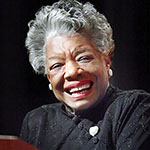
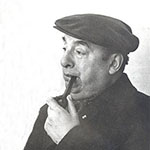
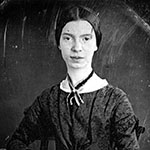
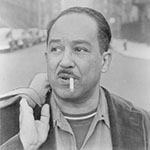
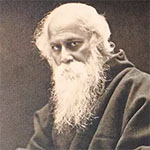
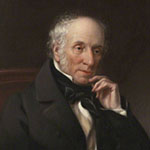

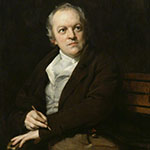


Leave a Reply